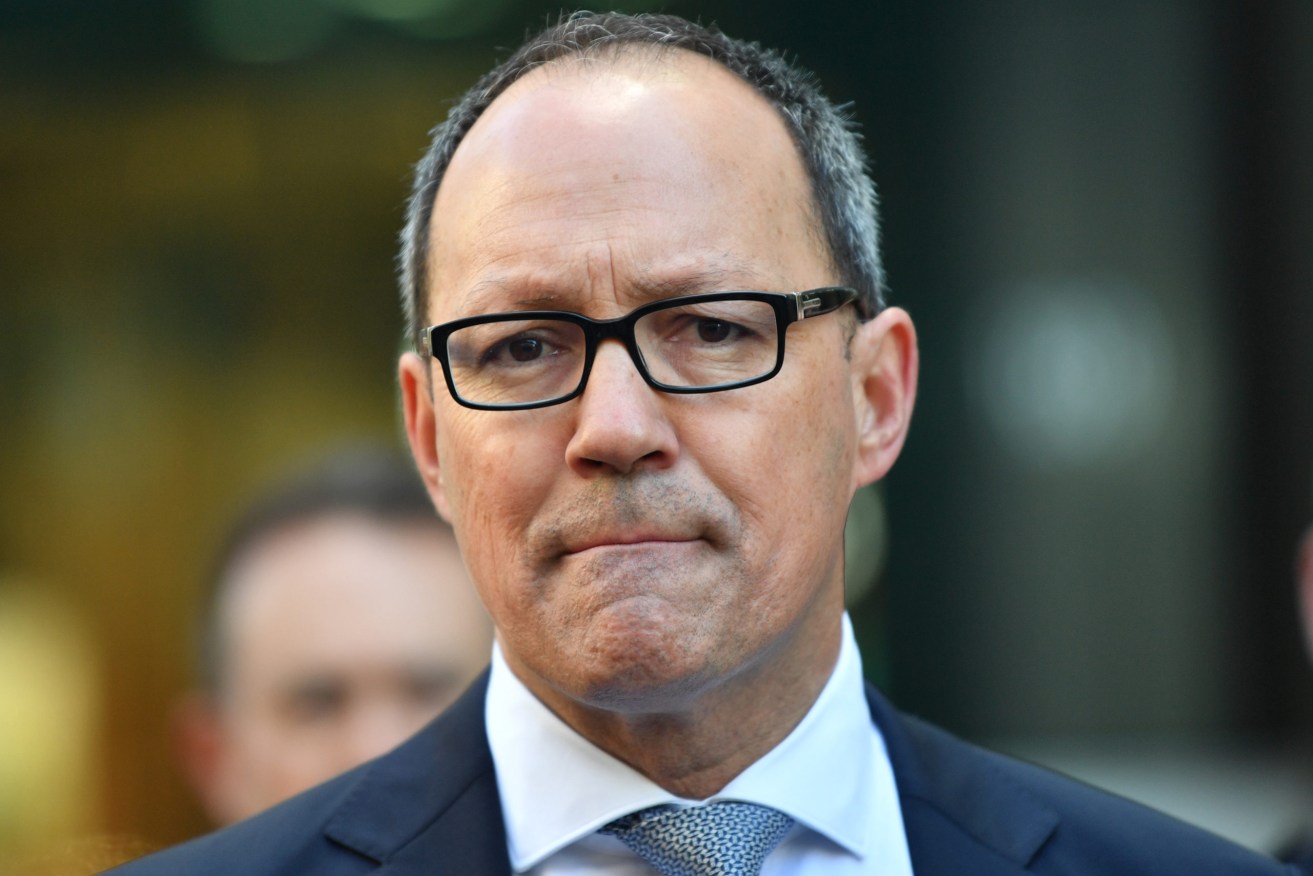Wingard criticised over UN prison oversight rebuke
South Australia’s youth justice watchdog has criticised Corrections Minister Corey Wingard for suggesting the state does not need greater prison oversight amid concerns there are “serious gaps” in the protection of detained children.

Transport and Infrastructure Minister Corey Wingard. Photo: David Mariuz/AAP
Training Centre Visitor Penny Wright said her office is seeking urgent clarification from the State Government about its position on a Federal Government commitment to grant UN inspectors unrestricted access to prisons, psychiatric wards, detention centres and police stations.
It follows a report in The Australian yesterday, which quoted a letter Wingard wrote to federal Attorney-General Christian Porter in November saying South Australia’s existing oversight mechanisms already adequately prevented torture and other inhumane treatment at prisons.
The commitment – known as the Optional Protocol to the Convention against Torture (OPCAT) – was signed in 2017 between the then Turnbull Government and the UN’s Human Rights Council without consultation with the states, despite a requirement that they fund the program.
Under the treaty, states are required to establish independent oversight agencies that work with the United Nations to ensure any place of detention does not administer torture or other cruel, inhumane or degrading treatment.
United Nations officials and government-appointed inspectors who work at the agencies would have the power to visit places of detention at any time – day or night – and without warning to ensure human rights standards are upheld.
They would also have the authority to demand that cells be unlocked for private interviews with people who are detained.
At the time of the ratification, the program was praised as a victory for human rights, but states and territories are still working to implement it.
Our biggest concern is what we don’t know
The Australian quoted Wingard saying implementing the program would carry “significant financial imposts” on the State Government.
Wright, whose office is responsible for conducting formal oversight inspections of the Youth Training Centre, said she had “great concerns” about Wingard’s comments.
She said while her role provided oversight at the Cavan Youth Training Centre, there were “serious gaps” in other places where children are detained, including in police custody or at mental health wards.
“We know that there are children who are held from time to time in police custody in remote areas of South Australia while their transport to Adelaide is pending and sometimes it’s more than a day and there’s no systematic program of oversight of those children or young people at this stage,” she said.
“My role does not cover oversight of children and young people who are held at the Youth Court in the cells there.
“Even when it comes to children and young people who are detained in the Training Centre, I do not have oversight or a mandate about them when they are being transported, under guard, when they’re away from the centre.
“If they’re temporarily receiving treatment – either medical or psychiatric treatment in the Women’s and Children’s Hospital – while they are off the physical campus I do not have powers of oversight over them.”
The Youth Training Centre Visitor is also currently unable to provide oversight to young people if they are sentenced as adults or transferred to the adult corrections system when they turn 18.
Wright said her office “very occasionally” heard “concerning” reports of children and young being allegedly mistreated in places of detention outside the Cavan Youth Training Centre campus.
“We make some inquiries, but the very issue is I don’t have specific powers to investigate or monitor those circumstances and those places of detention,” she said.
“Our biggest concern is what we don’t know – there is no systematic program of oversight for those sorts of places at the moment in South Australia.”
Opposition Human Services spokesperson Nat Cook said additional oversight of prisons was a “no-brainer” and the State Government’s progress on implementing the OPCAT in South Australia was “baffling”.
Over recent days we’ve seen here and interstate what can happen when vulnerable people are not adequately protected
She said Labor was currently consulting with stakeholders on a Bill to ensure OPCAT operated at the Adelaide Youth Training Centre.
Despite Wingard’s apparent concerns, a State Government spokesperson told InDaily that work was underway to introduce the program in South Australia by January 2021.
The spokesperson said UN representatives were scheduled to visit Australia in March to conduct inspections and provide advice regarding the implementation of OPCAT, but that visit was cancelled due to the COVID-19 pandemic.
“The South Australian Government is currently working with other jurisdictions regarding the OPCAT Intergovernmental Agreement through the Council of Attorneys-General and specifically how our range of existing inspectorate and visitation bodies within South Australia are included,” the spokesperson said.
“The South Australian Government will continue to work on the OPCAT’s Implementation between now and its implementation date.”
The Government says there are “many measures in place” to provide oversight to young people in detention, including a trial of body-worn cameras at the Adelaide Youth Training Centre.
Wright said the OPCAT would help protect all vulnerable South Australians – not just children and young people.
“Over recent days we’ve seen here and interstate what can happen when vulnerable people are not adequately protected,” she said.
“We’ve had the case of Ann-Marie Smith here, we’ve had the reported case of the two teenagers in Queensland with autism living in squalid conditions.
“There are examples everywhere of what happens when vulnerable or voiceless, powerless people aren’t adequately protected and that’s exactly what OPCAT is designed to do in relation to people who are detained.”
Want to comment?
Send us an email, making it clear which story you’re commenting on and including your full name (required for publication) and phone number (only for verification purposes). Please put “Reader views” in the subject.
We’ll publish the best comments in a regular “Reader Views” post. Your comments can be brief, or we can accept up to 350 words, or thereabouts.




